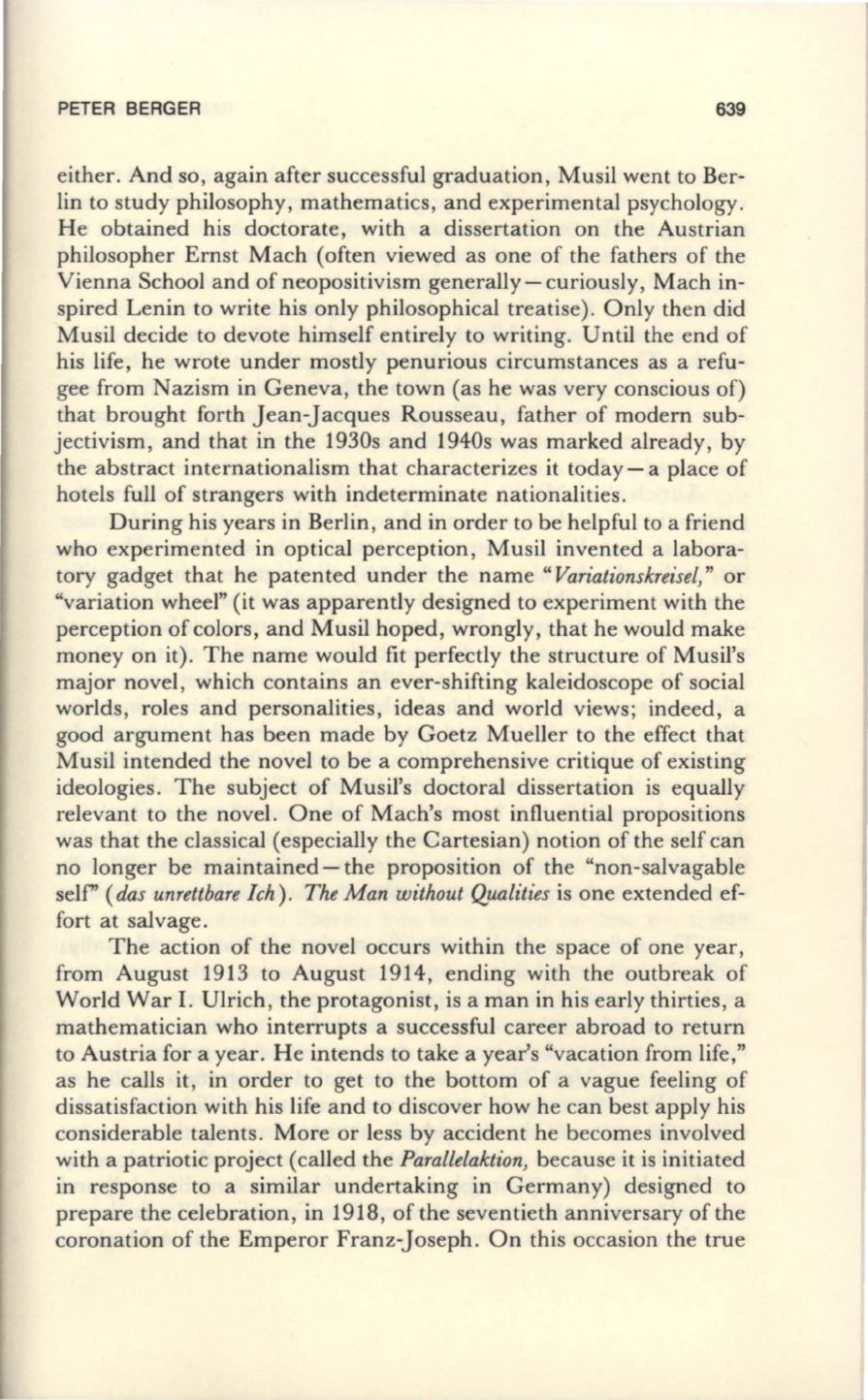
PETER BERGER
639
either. And so, again after successful graduation, Musil went to Ber–
lin to study philosophy, mathematics, and experimental psychology.
He obtained his doctorate, with a dissertation on the Austrian
philosopher Ernst Mach (often viewed as one of the fathers of the
Vienna School and of neopositivism generally- curiously, Mach in–
spired Lenin to write his only philosophical treatise) . Only then did
Musil decide to devote himself entirely to writing. Until the end of
his life, he wrote under mostly penurious circumstances as a refu–
gee from Nazism in Geneva, the town (as he was very conscious of)
that brought forth Jean-Jacques Rousseau, father of modern sub–
jectivism, and that in the 1930s and 1940s was marked already, by
the abstract internationalism that characterizes it today- a place of
hotels full of strangers with indeterminate nationalities.
During his years in Berlin, and in order to be helpful to a friend
who experimented in optical perception, Musil invented a labora–
tory gadget that he patented under the name
"Variationskreisel,"
or
"variation wheel" (it was apparently designed to experiment with the
perception of colors, and Musil hoped, wrongly, that he would make
money on it). The name would fit perfectly the structure of Musil's
major novel, which contains an ever-shifting kaleidoscope of social
worlds, roles and personalities, ideas and world views; indeed, a
good argument has been made by Goetz Mueller to the effect that
Musil intended the novel to be a comprehensive critique of existing
ideologies. The subject of Musil's doctoral dissertation is equally
relevant to the novel. One of Mach's most influential propositions
was that the classical (especially the Cartesian) notion of the self can
no longer be maintained- the proposition of the "non-salvagable
self' (
das unrettbare Ich
).
The Man without Qualities
is one extended ef–
fort at salvage.
The action of the novel occurs within the space of one year,
from August 1913 to August 1914, ending with the outbreak of
World War
I.
Ulrich, the protagonist, is a man in his early thirties, a
mathematician who interrupts a successful career abroad to return
to Austria for a year. He intends to take a year's "vacation from life,"
as he calls it, in order to get to the bottom of a vague feeling of
dissatisfaction with his life and to discover how he can best apply his
considerable talents. More or less by accident he becomes involved
with a patriotic project (called the
Parallelaktion,
because it is initiated
in response to a similar undertaking in Germany) designed to
prepare the celebration, in 1918, of the seventieth anniversary of the
coronation of the Emperor Franz-Joseph. On this occasion the true


